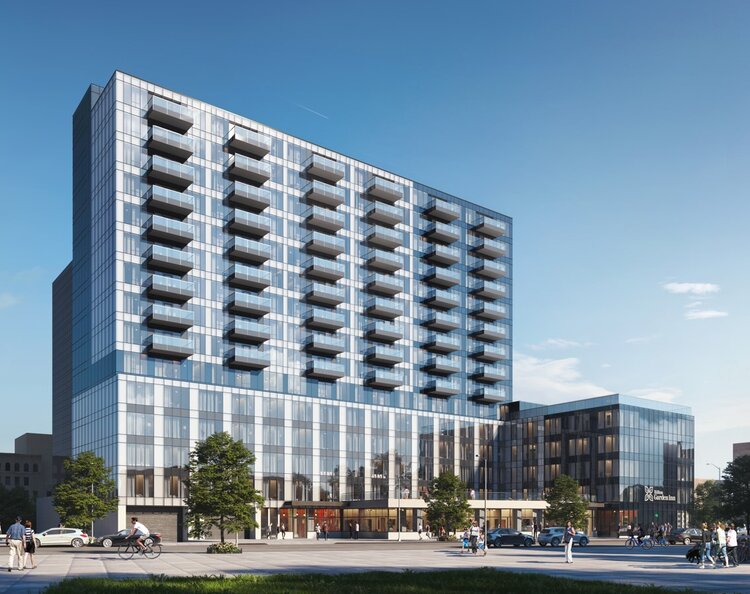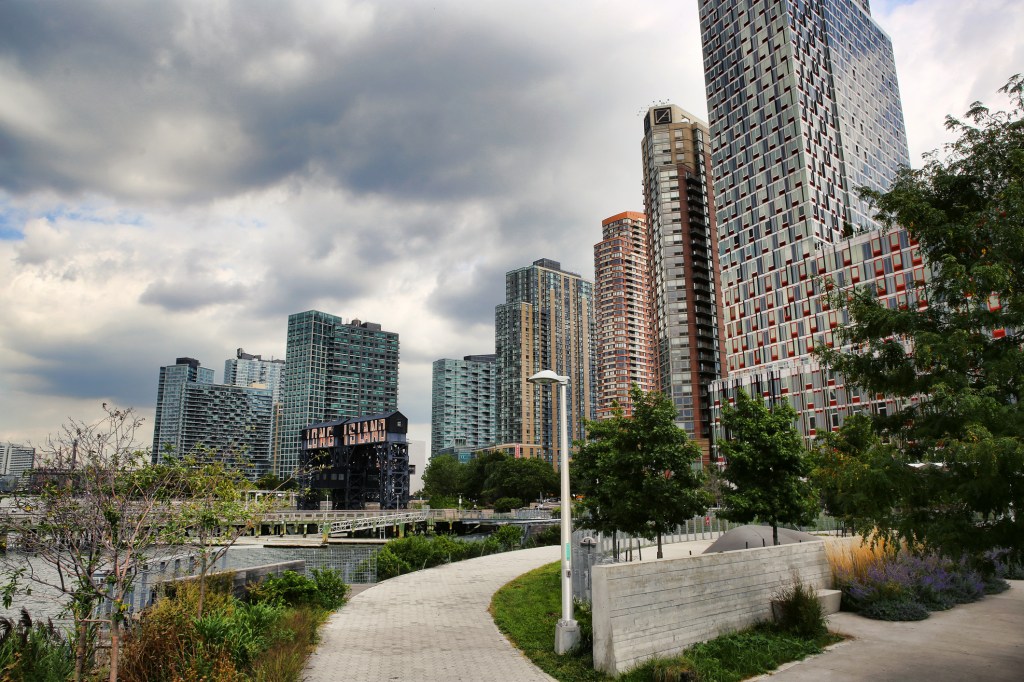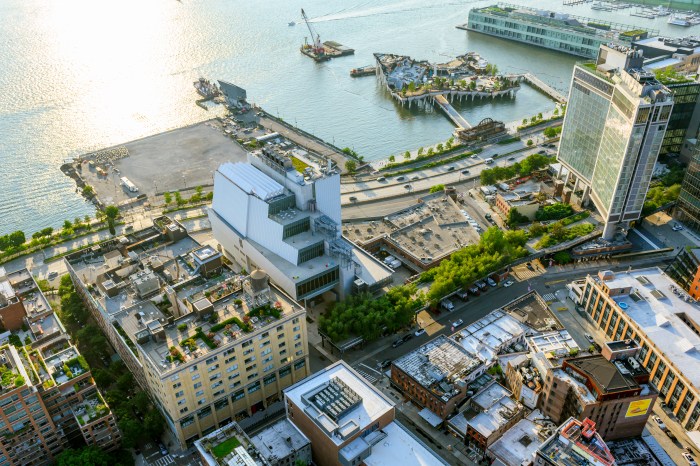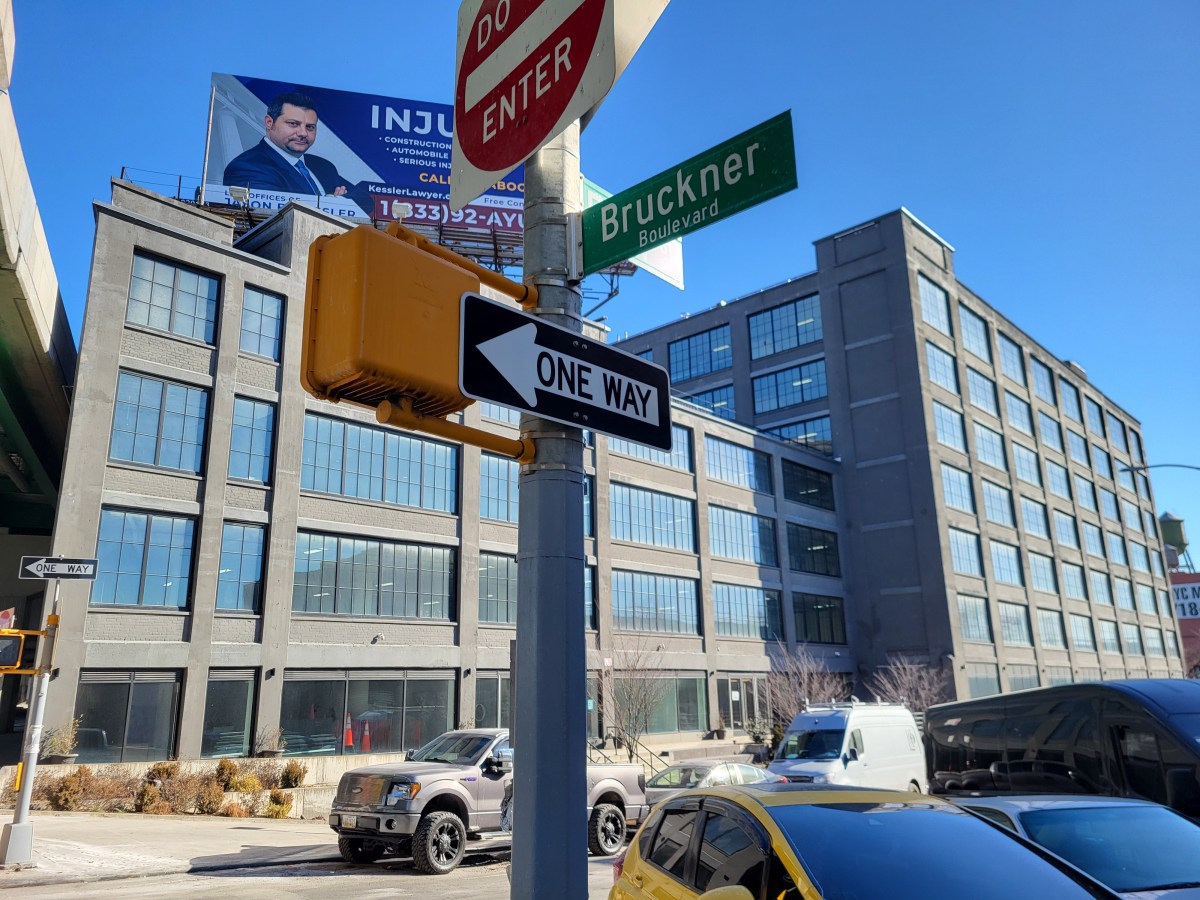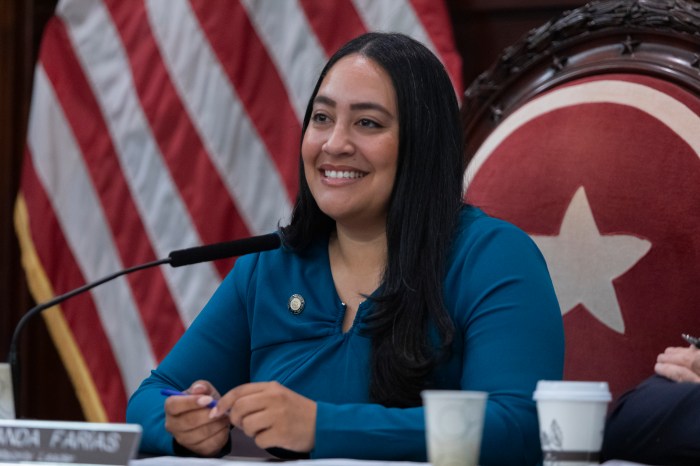Decommissioned military armories are notoriously difficult to redevelop, but the city says it has a novel plan to transform the 2.8-acre Bedford-Union Armory in Crown Heights.
Because publicly held armories have rarely, if ever, been turned into housing, how the controversial plan proceeds could set a precedent for other abandoned armories.
“This is a unique project, taking a former armory facility and activating it as both affordable housing and a recreation center that will be truly accessible to residents at all income levels,” Economic Developlment Corporation spokesman Anthony Hogrebe said in a statement.
The city EDC plans to sell the old horse stables to developer BFC Partners to build 56 condos in its place. The city would lease the rest of the property, including land below the drill shed, head house and garage, to BFC Partners, which would create 330 mixed-income apartments, a recreation center and office space there.
Many of the couple dozen defunct armories across the city are used as homeless shelters and administrative buildings because it can be hard to repurpose the sprawling, hollow military buildings for other uses, the EDC said.
The recreational aspect of the redevelopment is not new; the Park Slope Armory was converted into a YMCA, and the Kingsbridge Armory in the Bronx is inching toward becoming an ice rink complex.
But the EDC said it was not aware of any other armories where the city maintained control of the land and created housing, let alone affordable housing.
The plan has elicited a mix of reactions in Crown Heights.
Geoffrey Davis, a local leader with the Democratic Party, described the Bedford-Union model as a promising addition to the area and other communities, citywide.
“Our young people need a place to go,” Davis said, referring to the proposed recreation center. “I hope the mayor sees this, and sends it to other boroughs.”
New York Communities for Change, a group advocating for low-income New Yorkers, sees the plan as one of several city attempts to give public land to private developers, according to Cea Weaver, its research and policy director.
The group also believes the project does not contain a substantial number of homes that would be affordable to people in the community, which they fear will accelerate gentrification.
“The city should be looking for a way to use its public land to solve its affordable housing crisis,” Weaver said.
The proposal is currently before Brooklyn Borough President Eric Adams, who did not respond to requests for comment.
After input from Adams, the City Planning Commission will review the plan. If the plan advances, a vote would be scheduled in the City Council, which tends to defer to local lawmakers on development decisions.
Crown Heights’ representative, City Councilwoman Laurie Cumbo, did not directly respond to questions about what precedent the project could set.



